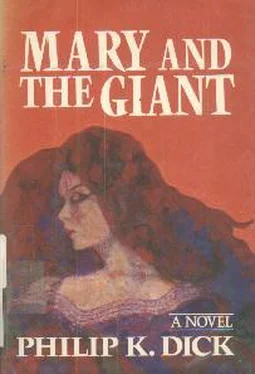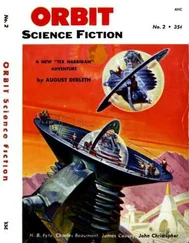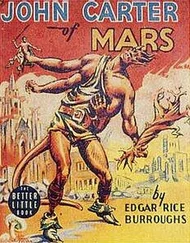Philip Dick - Mary And The Giant
Здесь есть возможность читать онлайн «Philip Dick - Mary And The Giant» весь текст электронной книги совершенно бесплатно (целиком полную версию без сокращений). В некоторых случаях можно слушать аудио, скачать через торрент в формате fb2 и присутствует краткое содержание. Жанр: Фантастика и фэнтези, на английском языке. Описание произведения, (предисловие) а так же отзывы посетителей доступны на портале библиотеки ЛибКат.
- Название:Mary And The Giant
- Автор:
- Жанр:
- Год:неизвестен
- ISBN:нет данных
- Рейтинг книги:4 / 5. Голосов: 1
-
Избранное:Добавить в избранное
- Отзывы:
-
Ваша оценка:
- 80
- 1
- 2
- 3
- 4
- 5
Mary And The Giant: краткое содержание, описание и аннотация
Предлагаем к чтению аннотацию, описание, краткое содержание или предисловие (зависит от того, что написал сам автор книги «Mary And The Giant»). Если вы не нашли необходимую информацию о книге — напишите в комментариях, мы постараемся отыскать её.
Mary And The Giant — читать онлайн бесплатно полную книгу (весь текст) целиком
Ниже представлен текст книги, разбитый по страницам. Система сохранения места последней прочитанной страницы, позволяет с удобством читать онлайн бесплатно книгу «Mary And The Giant», без необходимости каждый раз заново искать на чём Вы остановились. Поставьте закладку, и сможете в любой момент перейти на страницу, на которой закончили чтение.
Интервал:
Закладка:
Philip K. Dick
Mary And The Giant
1
To the right of the hurrying car, beyond the shoulder of the highway, stood a gathering of cows. Not far beyond rested more brown shapes, half-hidden by the shadow of a barn. On the side of the barn an old Coca-Cola sign was vaguely visible.
Joseph Schilling, seated in the back of the car, reached into his watch pocket and brought out his gold watch. With an expert dig of his nail he lifted the lid and read the time. It was two-forty in the afternoon, the hot, midsummer California afternoon.
"How much farther?" he inquired, with a stir of dissatisfaction. He was weary of the motion of the car and the flow of farmlands outside the windows.
Hunched over the steering wheel, Max grunted without turning his head. "Ten, maybe fifteen minutes."
"You know what I'm talking about?"
"You're talking about that town you marked on the map. It's ten or fifteen minutes ahead. I saw a mileage sign back a ways; at that last bridge."
More cows came into sight, and with them more dry fields. The far-off mountain haze had, during the last few hours, settled gradually into the depths of the valleys. Wherever Joseph Schilling looked the haze lay dully spread out, obscuring the baked hills and pastures, the assorted fruit orchards, the occasional calcimined farm buildings. And, directly ahead, the beginnings of the town: two billboards and a fresh egg stand. He was glad to see the town arrive.
"We've never been through here," he said. "Have we?"
"The closest we've come is Los Gatos, on that vacation you took back in '49."
"Nothing can be done more than once," Schilling said. "New things must be found. As Heraclitus would say, the river is always different."
"It all looks alike to me. All this farm country." Max pointed to a herd of sheep collected under an oak tree. "That's those sheep again ... we've been passing them all day."
From his inside coat pocket Schilling got out a black leather notebook, a fountain pen, and a folded map of California. He was a large man, in his late fifties; his hands, as he gripped the map, were massive and yellowed, the skin grained, fingers knobby, nails thick to the point of opaqueness. He wore a rough tweed suit, vest, somber wool tie; his shoes were black leather, English-made, dusty with highway grime.
"Yes, we'll stop," he decided, putting away his notebook and pen. "I want to spend an hour getting a look around. There's always the possibility this one might do. How would you like that?"
"Fine."
"What's the town called?"
"Thigh Junction."
Schilling smiled. "Don't be funny."
"You have the map-look it up." Grumpily, Max admitted, "Pacific Park. Set in the heart of rich California. Only two days of rain a year. Owns its own ice plant."
Now the town proper was emerging on both sides of the highway. Fruit stands, a Standard station, one isolated grocery store with cars parked in the dirt plot alongside it. From the highway wandered narrow, bumpy roads. Houses came into sight as the Dodge pulled over into the slower lane.
"So they call this a town," Max said. Gunning the engine, he swung the car into a right turn. "Town here? Over here? Make up your mind."
"Drive through the business section."
The business section was divided into two parts. One part, oriented around the highway and its passing traffic, seemed to be mostly drive-ins and filling stations and roadside taverns. The second part was the hub of the town; and it was into that area the Dodge now moved. Joseph Schilling, his arm resting on the sill of the open window, gazed out, watchful and absorbed, gratified by the presence of people and stores, gratified that the open country was temporarily past.
"Not bad," Max admitted, as a bakery, a pottery and notion shop, a modern creamery, and then a flower shop went by. Next came a book shop-Spanish adobe in style-and after that a procession of California ranch-style homes. Presently the homes fell behind; a gas station appeared and they were back on the state highway.
"Stop here," Schilling instructed.
It was a simple white building with a painted sign that flapped in the afternoon wind. A Negro had already risen from a canvas deck chair, put down his magazine, and was coming over. He wore a starched uniform with the word Bill stitched across it.
"Bill's Car Wash," Max said as he put on the parking brake. "Let's get out; I have to take a leak."
Stiffly, with fatigue, Joseph Schilling opened the car door and stepped onto the asphalt. In getting out he was obliged to crowd past the packages and boxes that filled the back of the car; a pasteboard carton bounced onto the running board and he bent laboriously to catch it. Meanwhile, the Negro had approached Max and was greeting him.
"Right away. Put it right through, sir. Already call' my assistant; he over getting a Coke."
Joseph Schilling, exercising his legs and rubbing his hands, began walking around. The air smelled good; hot as it was it lacked the stuffy closeness of the car. He got out a cigar, clipped off the end, and lit up. He was breathing dark blue smoke here and there when the Negro approached.
"He working on it right now," the Negro said. The Dodge, pushed bodily into the wash, had half-disappeared into the billows of soap and hot water.
"Don't you do it?" Schilling asked. "Oh, I see; you're the engineer."
"I'm in charge. I own the car wash."
The door of the men's room was open; inside, Max was gratefully urinating and muttering.
"How far is San Francisco from here?" Schilling asked the Negro.
"Oh, fifty miles, sir."
"Too far to commute."
"Oh, they commute, some of them. But this no suburb; this a complete town." He indicated the hills. "A lot of retired people, they come here because of the climate. They settle; they stay." He tapped his chest. "Nice dry air."
Clouds of high school students roamed along the sidewalks, across the lawn of the fire station, gathering at the windows of the drive-in on the far side of the street. One pretty little girl in a red sweater held Schilling's attention as she stood sipping from a pasteboard cup, her eyes large and vacant, her black hair fluttering. He watched until she noticed him and ducked defensively away.
"Are those all high school children?" he asked Bill. "Some of them look older."
"They high school students," the Negro assured him with civic authority. "It just three o'clock."
"The sun," Schilling said, making a small joke. "You have sun most of the year ... it ripens everything faster."
"Yes, crops here all year round. Apricots, walnuts, pears, rice. It nice here."
"Is it? You like it?"
"Very much." The Negro nodded. "During the war I live down in Los Angeles. I work in a airplane factory. I ride to work on the bus." He grimaced. "Shee-oot."
"And now you're in business for yourself."
"I got tired. I live a lot of different places and then I come here. All during the war I save for the car wash. It make me feel good. Living here make me feel good. can sort of rest."
"You're accepted here?"
"There a colored section. But that good enough; that about all you can expect. At least nobody ever say I can't come and live. You know."
"I know," Schilling said, deep in thought.
"So it better here."
"Yes," Schilling agreed. "It is. Much better."
Across the street the girl had finished her soft drink; crumpling the cup, she dropped it into the gutter and then strolled off with friends. Joseph Schilling was looking after her when Max emerged from the men's room, blinking in the sunlight and buttoning his trousers.
"Hey, hey," Max said warningly, seeing the expression on his face. "I know that look."
With a guilty start, Schilling said, "That's an exceptionally lovely girl."
Читать дальшеИнтервал:
Закладка:
Похожие книги на «Mary And The Giant»
Представляем Вашему вниманию похожие книги на «Mary And The Giant» списком для выбора. Мы отобрали схожую по названию и смыслу литературу в надежде предоставить читателям больше вариантов отыскать новые, интересные, ещё непрочитанные произведения.
Обсуждение, отзывы о книге «Mary And The Giant» и просто собственные мнения читателей. Оставьте ваши комментарии, напишите, что Вы думаете о произведении, его смысле или главных героях. Укажите что конкретно понравилось, а что нет, и почему Вы так считаете.










